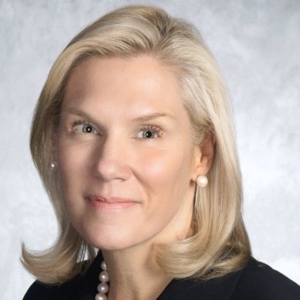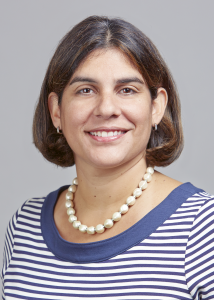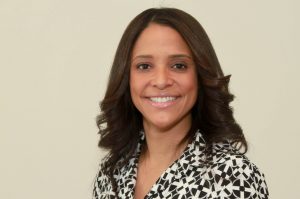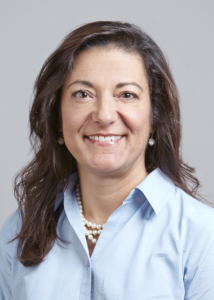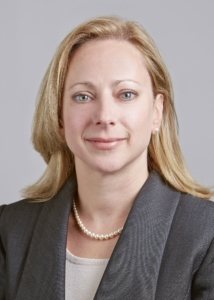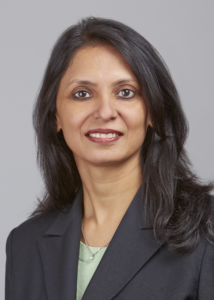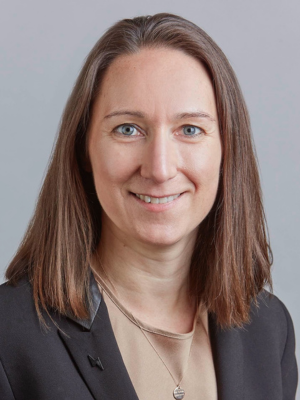 Twelve years ago, we spotlighted Marion Regnier in our “35 under 35” segment, where she shone as a Senior Associate at PwC. Fast forward, Regnier ascended to partner and has also embraced motherhood, marking a dynamic journey of professional and personal growth. Regnier shares what she has learned in this phase of her career and her insights on leadership, client relationships and the importance of great colleagues.
Twelve years ago, we spotlighted Marion Regnier in our “35 under 35” segment, where she shone as a Senior Associate at PwC. Fast forward, Regnier ascended to partner and has also embraced motherhood, marking a dynamic journey of professional and personal growth. Regnier shares what she has learned in this phase of her career and her insights on leadership, client relationships and the importance of great colleagues.
Making Partner
Becoming a partner in 2020 amid the pandemic was a unique experience for Regnier, as she celebrated virtually with a morning glass of champagne in front of her laptop. Despite the solitary setting, it marked a significant moment of recognition for her hard work, instilling a deep sense of pride and responsibility as the firm entrusted her with this title. Since becoming partner, Regnier finds joy in the realization that the role affords her greater control over how she allocates her time, enabling her to direct her efforts towards activities that resonate more closely with her passions.
“Becoming partner has allowed me to create a balance of where I spend my time between driving impact at our clients, collaborating with my team, working on innovative projects, and nurturing and developing relationships with clients. I enjoy my work a lot more because I have more control over where I can make an impact and focus my efforts.”
Making an impact is important to Regnier, particularly as it relates to finding creative solutions for her clients. In her role as partner in technology strategy, she is energized by the challenge of exploring ways to rethink and reframe her clients’ complex problems to come up with innovative solutions.
“Innovation is significant to me as it involves applying creativity to how we work and problem solve as a team as well as addressing our clients’ challenges. We need to strike a balance between leveraging our experience and taking calculated risks to think differently. Merely repeating past strategies may not yield the desired results for every client; we need to creatively rethink our approach to maximize impact and factor in each companies’ culture, values, goals and ability to absorb change.”
Thinking Ahead and Being Proactive
In contemplating the factors contributing to her advancement as a leader, Regnier underscores the significance of proactively taking initiative and anticipating both clients’ future needs and the needs of the organization.
“Instead of thinking transactionally when working on a project, it is important to be proactive in anticipating clients’ future needs. Our clients are busy and often time-slice constantly. We are of most help when we can think 10 steps ahead and advise on what they need to do now to prepare. It’s about constantly thinking ahead as opposed to only reacting.”
Not only does Regnier take this proactive approach externally when working with clients, but she also uses it internally to reflect on where there might be a value-add for the firm.
“For me, it is interesting to notice where in the organization there is a void or a white space for a particular type of service that we should provide to our clients based on demand, questions we are getting, and general market evolution. Then putting together a strategy to fill the gap that understands and meets clients’ needs effectively.”
Regnier sites a recent example of how she used this approach to address the environmental needs of a client’s CIO (Chief Information Officer).
“A CIO is a huge player in trying to help their company achieve climate goals, and we needed to comprehensively respond to their questions on what is an effective IT sustainability strategy. As technology creates a material carbon footprint, in particular for industries that are more digital than physical, a CIO has very specific needs, requiring a thoughtful strategy to embed environmental principles, measurements, ways of working to deliver IT services differently. Consequently, I proactively raised my hand to address this specific need.”
What started as taking initiative in addressing an organizational need has turned into a passion project for Regnier, as she notes that she enjoys working on something that she really cares about. She also sees it as a strategic move in her career, as she is inclined towards exploring emerging areas with both personal interest and potential business value.
You Don’t Succeed in Your Career Alone
Beyond thinking innovatively and being proactive, Regnier emphasizes the importance of collaboration as central to career success.
“You don’t succeed in your career alone. It’s not enough to just work hard or effectively. It’s about doing the work not alone, but in collaboration, and finding a group of people with whom you get problems solved and outcomes accomplished.”
Regnier distinguishes collaboration from building a network as she sees a network as more of a web of acquaintances who might help with information, referrals, or advancement. In her view, true collaboration is interconnectedness, an ecosystem of people where there is give and take and you are challenged and coached, and it’s reciprocated.
She reflects, “Earlier in my career, I thought what mattered to be successful was being excellent at my job and prioritized “doing the work” above all else. Then I came to recognize overtime and with seniority that the relationships formed and the collaborative work with others were more impactful. You have to be open to that collaboration and not solely focused on your own success because the success of the collective also matters. Meaning the success of the project, the success of the client, and the success of the firm. That is why the interconnectedness of collaborators in driving value and outcomes is so important.”
At PwC, Regnier finds that true collaboration can happen because of the emphasis on teamwork. She shares, “Our profession is suited for collaboration because we work in teams that aren’t static. We have an organizational team, and then we have project teams, therefore the composition is always changing. This dynamic structure allows us to engage in different projects and topics with various groups and be exposed to a variety of thinkers who constantly allow you to grow and step outside of your comfort zone.”
Sponsorship as a Change Agent
Sponsorship is another key facet of Regnier’s perspective that “you don’t succeed in your career alone”. Regnier cites one of her own sponsors as integral to her professional growth.
“He’s always believed in me and inspired me to be better. He also gave me a different perspective and opened up the aperture to look at things in new ways, to not only focus on “doing” but rather to rethink how to best focus on value. I appreciate that he continues to challenge me.”
Regnier also sees sponsorship as a vehicle for creating change not just for an individual, but for the organization as a whole. She values talent development and understands the skills, experience, and responsibility to create more diversity in leadership. Regnier points to the value of finding opportunities for women and other talent such as LGBTQ and BIPOC individuals to develop skills that will help take them forward and upward.
“When you give any person the right opportunity needed to help them grow or acquire new skills, you are taking the time to invest in them. To me that is core to leading. It’s not only about putting someone knowledgeable on a project, but rather thinking about who you can give that opportunity to so that they can develop new skills, and this includes thinking about who doesn’t get asked, typically.”
Development of people also extends to organizational commitment when it comes to supporting people through different chapters of their life.
“PwC understands and supports new parents very well. I was able to take parental leave when my wife gave birth to our first child and then again when I gave birth to our second child. It is this type of commitment to all parents that allows people to perform at their highest levels. I even can use an emergency childcare service several times per year to cover any contingencies in childcare.”
Even once people make it to partner, Regnier believes that it is important to continue to invest in leaders’ development.
“After you make partner, you’re left with a queasy sense of… what’s next? That is where the focus on impact for our clients and paying it forward via sponsorship can be effective in helping junior partners learn from senior partners. For example, they can bring their “sponsee” to a board meeting not only because they might have something to bring to the table, but also as an opportunity for experiential learning and succession planning.”
Outside of work, Regnier is exploring the balance and embracing the joy of having two kids under three years old. Immersing them in her native French language is important to her, and taking the time to teach them to solve problems and care for others is core to what she defines as parenthood.
By Jessica Robaire

